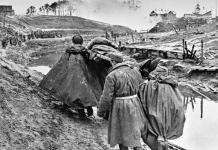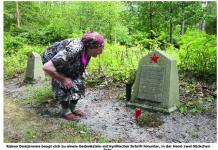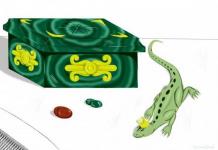Psychological history, which is a collection of data about the client, was initially widely exploited in medical psychology. This type of obtaining information is divided into subjective, when the specialist works exclusively with the patient himself, and objective, when information comes from his environment.
common data
Today, the concept of psychological history has become much broader. Freed from the narrow framework of medical psychology, the psychological history is synonymous with the individual development of the personality and its characteristics.
A specialist, collecting information and analyzing the data obtained, has the opportunity to correctly answer the question of what exactly provoked this or that developmental disorder.
In addition, anamnesis in psychology implies the availability of information regarding the hypothetical capabilities of the patient, about what he is interested in and what he strives for. Thanks to the data obtained, the specialist has the opportunity to put forward hypotheses and look for ways to correct the pathological situation.
Working with a child
Features of work
To compile a sample psychological history of a young client, the specialist should pay attention to:
- identification of key mechanisms that affect the personality of a young client;
- connection of early childhood accidents with current developmental features;
- the specifics of development in each of the age periods.
This psychological research is exploited in a very broad sense. For this reason, the specialist should not focus on the negative personality traits of the subject.
Existing difficulties
Compiling an example of a psychological history, the specialist often encounters some difficulties. The most significant are:
- It is far from always possible to draw up a real picture based on the data received from parents.
- It is rather problematic to obtain information on the reaction of the subject to this or that change.
- The specialist rarely has the opportunity to separate the real facts about the life and development of the child from parental interpretations.
Differences in psychological history
History in psychology has several significant differences from the medical history of the disease. This type of research has the following objectives:
- revealing the relationship of a person to his own personality;
- identification of a person's attitude to the disease;
- identifying how the disease affected the client's life.
Anamnesis in medicine, collected from the patient's complaints, reveals only the factors that provoked the progression of a particular disease.
There is also a psychiatric history used to identify mental pathologies. The main symptoms can be revealed by personal contact with a patient who is in a psychotic state.
Both topical types of research have many similar external features.
The scheme of psychological history is almost similar to the scheme of medical research. However, the exploitation of the obtained data is significantly different.
Psychologists, in addition to the anamnesis of life, distinguish the anamnesis of the disease. In this case, it takes into account how the patient relates to what surrounds him and presents information about his disease to the doctor. Based on the data received, the specialist draws a conclusion regarding the personality of the client.
How data is collected
An example of a psychological history should comply with all existing rules for integrative assessment. It is the most important aspect of constructing a specific hypothesis in psychological science. In addition, thanks to a whole “storehouse” of the most objective data about the personality of the person being studied, the specialist has the opportunity to identify the key factors that provoke the development of a particular disease. 
Psychologists note that the key to objective data is a dynamic approach. To obtain reliable information, it is extremely important to pay enough attention to the implementation of its principle.
Data collection is often based on information obtained through medical research.
But it is important to remember that this study is quite specific, and the conversation between a specialist psychologist and his adult or young client is based on the relevant topics and questions.
Help for psychologists
If the medical history is worked out in detail and thoroughly, then the work of a specialist in the field of psychology will be greatly facilitated. This is due to the fact that in this case, the specialist may not waste time asking already completed and processed questions.
In this case, the specialist should only clarify narrower questions, which will turn the medical history into a psychological study.
Often, specialists in the field of psychology working in kindergartens (state or private), schools and other educational institutions, and carrying out psychological, pedagogical and social assistance children and adolescents are a real anchor of salvation. This is explained by the fact that parents of “difficult” schoolchildren with mental disorders to one degree or another seek help and support from them in the first place.
If this happens, then the specialist undertakes to evaluate the entire developmental history of the young patient. Particular attention is drawn to how the fetus developed inside the mother's womb.
Conclusion
Some time ago, only specialists in the field of medicine had the opportunity to correctly evaluate and analyze the data obtained.
Today, psychologists have received higher qualifications, which allows them to engage in the collection of psychological anamnesis. This is considered a clear indicator that the specialist is a true professional in his field. This is especially true for specialists working with schoolchildren with an unstable mentality, or with those children who have been diagnosed with one or another psychological illness.
In family, and in particular in developmental psychological, counseling, one of the first and important works psychologist-consultant is the collection of psychological anamnesis. Dedicated to this puppy first meeting(s) with the client. Auxiliary tool for collecting a psychological history of the child in the case of counseling about parent-child relationships is an history questionnaire. Several different versions have been developed. In the practice of age-psychological counselor tations at the department developmental psychology Department of Psychology, Moscow State University, the questionnaire below has proven itself well. In any case, the questionnaire does not replace, a only helps to conduct an anamnestic conversation with the client. The principles of compiling an (age-) psychological anamnesis are most fully described by G.V. Burmenskaya [Burmenskaya G.V. et al., 2002].
Questionnaire text
FULL NAME._
Mother: F.I.O._
education_
speciality_
Father: Full name_
education_
speciality_
For parents of children aged 3 to 6
- What is the composition of the family (indicate the age of its members)_
- Where the child was brought up (whether he attended a nursery, a round-the-clock or ordinary kindergarten, at what age, who was involved in raising a child before entering a preschool institution)_
- Features of the development of the child in infancy and early age: when sat_went_
When did the first words and phrases appear?
dominant emotional background
interest in the environment
When did self-care skills develop?
Were there any behavioral difficulties at 3 years old_ - What are the child's favorite activities _
- What games and with whom does the child like to play?
Houses___
in kindergarten
in the courtyard________ - Does: drawing__constructive
games ___
what does he do around the house (regularly)_ - Can the child read?
how did you learn - Does the child like to ask questions, what is interested in_
- The relationship of the child with parents (with which of the family members the child communicates more, to whom he is more attached) _
- The nature of relationships with peers
- Typical conflicts_
ways to resolve them - How do you reward and punish your child_
- How do you assess the behavior of your child (kind, obedient, impudent, stubborn, attentive to other family members, touchy, etc.)_
- State of health (how often is she sick, have there been injuries, has the child been hospitalized)_
- Features of the history of the development of the child (the presence of mental trauma, serious changes in life, etc.)_
- What worries you about your child_
For parents of students - At what age did you go to school, how did you adapt to school life__
- What is the academic performance, favorite and least favorite subjects__
- How did the relationship with the teacher develop, are there any complaints from teachers about the child___
- What is the relationship with classmates_
Date of filling out the questionnaire "_" _ 200_.
The scheme for compiling a psychological history, according to G.V. Burmenskaya
This scheme is based on the age principle (with the exception of the first three sections, which include information general).
- Personal data of the child and basic information about the family.Date of birth and exact age at the time of the examination of the child. The full composition of the family, indicating the age, education and nature of the work of all family members, as well as relatives or other persons actually involved in the upbringing of the child. Changes in family composition since the birth of a child. General information about the housing, material and living conditions of the family (in the presence of unfavorable circumstances, a more detailed description of them is necessary hereinafter).
- Features of the perinatal period of child development.General information about the conditions of development before and after birth. The presence of risk factors in the health of mother and child. (If you suspect the presence of organic or other disorders that are within the competence of physicians, the psychologist must obtain a medical opinion; accordingly, information regarding the medical part of the anamnesis is collected by the doctor.)
- The state of health of the child at the time of the examination and past illnesses.The presence of injuries and operations, chronic or frequent diseases. hospitalization cases. Registration with a psychoneurologist or other specialists. Features of sleep and nutrition from the moment of birth.
- Where and by whom was the child brought up, starting from birth? Who looked after him during the first two years of his life? Placing a child in a nursery Kindergarten or other children's institutions (indicate the timing and type of institution, for example, round-the-clock or daytime, special- speech therapy, for children with neurological diseases, etc.). How did the child get used to children's institutions, how did relations develop with children, were there any complaints from educators? Were there drastic changes in the environment in which the child grew up (for example, moving), frequent or long separations from parents? The child's reaction to them.
- Development in infancy and early life(up to three years inclusive). Features of the development of motor skills. The timing of the appearance of the main sensorimotor reactions: when he began to sit, stand, walk, etc. General emotional tone. Speech development: the timing of the appearance of the first words, phrases, activity speech communication. Activity in the development of the environment, curiosity. Attitude to close and unfamiliar adults. Mastering objective actions (when he learned to eat and dress himself). Terms of formation of skills of self-service. When and how were you taught to be neat? Manifestations of independence, perseverance. What behavioral difficulties were observed? Favorite activities and games
- Child development in before school age . Favorite activities. What games and with whom do you like to play? Does he like to draw, at what age, what? Does he like to listen to fairy tales, memorize poems, watch television programs? Can he read, when and how, on whose initiative did he learn? How developed physically? Which hand is leading? Are there household chores? Are joint forms of activity of the child practiced with adults? Relationships with peers. Relationships with family members. Typical conflicts, their frequency. Adult punishments and rewards. current bans. Character features. Does he attend any circles, studios, sections, does he have any special classes? How do you spend your leisure time? Early manifestations of abilities for music, drawing, etc. Does he show initiative? Are there any fears or any other undesirable manifestations?
- Child development in early childhood.At what age did you enter school? Is it easy to adapt to school life? Type of visit educational institution(special school, boarding school, etc.). Does he attend an after-school group? Was there a change of school, class, if so, for what reason? Academic performance: favorite and least favorite subjects. Doing homework. Relations with classmates (friendly, conflict, etc.). Relationships with teachers. Participation in the social life of the school. The presence of extracurricular activities and hobbies (circles, sports clubs, etc.), social circle outside the school. The degree of independence. Household duties. Place games, television and reading in the leisure of the child. The most common conflicts
- Development in preadolescence and adolescence. Physical development. Features of the transition to the middle link of the school. Changes in behavior and interests. Features of relationships in the family. How do tendencies towards independence and adulthood manifest themselves? Forms of communication with peers, leisure activities, participation in informal organizations.
- What else, from the point of view of parents, is important to note in the history of the child's life?
G. V. Burmenskaya emphasizes that the above list of rosov for compiling the history of the development of the child is nothing more than a scheme, the individual points of which are subject to significant specification, depending on many conditions: the nature complaints parents, individual features setting (for example, a twin situation or the presence in the family of several children different ages and.d.). In more detail, the features and examples of collecting a psychological history are described in the book “Age stno -psychological approach to counseling children and adolescents” [Burmenskaya G. V. et al., 2002].
Recreating the features of the course and conditions of development of the client at the stages of ontogenesis he has passed with good reason is one of the mandatory methods used in developmental psychological counseling. In counseling a child, along with observational data and experimental psychological examination, the developmental history, or psychological history, is the most important source of information necessary to assess the development and nature of the problems that have arisen. As L.S. wrote Vygotsky, on the basis of data on the development and upbringing of the child, the psychologist must create not just a “chronicle” of various events, i.e. enumeration of individual circumstances that influenced the development of the child, and a causal biography of his development and upbringing. In other words, the psychologist must identify the sources, factors and mechanisms of the most significant influences on personality formation, trace the causal relationships of childhood events with the characteristics mental development child, take into account the specifics of the content and real composition of the necessary conditions for development in each age period.
The special significance of the conditions in which the child develops follows from the domestic psychology concept of ontogenesis as a process of lifetime formation mental activity and personality of the child. In addition, the ambiguity of many features of behavior and mental activity, the limited possibilities for studying them in a situation of single and rather short-term meetings with a consultant psychologist also lead to the need to attach great importance to anamnestic data when interpreting survey results. For example, children with significantly different backgrounds psychological disorders and difficulties can reveal not only a similar picture of behavior, but also give similar results in a diagnostic examination (for example, emotional disturbances in children as a result of the so-called "erased forms of hospitalism" and in connection with some emerging character accentuations or cognitive impairment in children suffering from mild brain dysfunction, and in children with pedagogical neglect, etc.). As a rule, the current state of the mental development of the child, his " psychological status"can only be correctly assessed and interpreted in the light of the entire previous history of its development. That is why the psychologist-consultant, as emphasized by G.V. Burmenskaya, should pay special attention to the analysis of the complex set of living conditions in which the child grew up.
In the literature on personality psychology research and counseling, the developmental history of a child or adult is often referred to as psychological history[Elkonin D.B. Selected psychological works. - M., 1989]. As you know, anamnesis is a medical concept, in the narrow sense of the word, denoting the history of the development of the disease. In a broader sense, the anamnesis includes not only data on the onset and development of the disease reported by the patient (or his relatives), but also information about the conditions of his life, work, etc. Physicians single out personal and family history, anamnesis of the prenatal period, the neonatal period, etc. depending on who reports the information and to what period of development they refer. Thus, if it is appropriate to talk about the anamnesis itself in connection with the presence of anomalies or diseases, then the concept of "psychological anamnesis" is free from the obligatory connection with painful processes and is used as a synonym for the concept of "history of the child's individual mental development".
V various areas medicine, the value of the anamnestic method is significantly different. It is, for example, very large in child psychiatry. It is believed that in the diagnosis of intellectual disability “an accurate and detailed history may be the most important part of the diagnosis. As a result of skillful collection, it is often possible to make a presumptive diagnosis before obtaining objective data. It is natural, however, that the borrowing of the term "anamnesis" from medicine cannot mean the transfer to psychology of the principles of collecting and analyzing anamnestic data. It is quite natural that representatives of these sciences are interested in different aspects of development, even if we are talking about the same facts. For a psychologist, the focus is on the process of assimilation of social experience, and hence the mechanisms and conditions for the formation of activity and communication.
Principles of compiling a psychological history . The basis psychological approach to the collection and systematization of anamnestic data about the child may be age periodization scheme. The psychologist receives from the client extremely voluminous and heterogeneous information regarding the history of development (and often the prehistory of his birth) and the scheme of age periodization can become the basic principle for organizing this information. We emphasize that the psychological history necessary for solving consultative tasks cannot be reduced to tracing the history of the emergence and development of mainly undesirable, negative features, those problems and difficulties that are stated in the client's complaints.
One of the significant difficulties that arise when compiling a psychological history is related to the need to rely on the data that has been preserved in the client's memory. As a rule, many of the features of behavior, occupations, character traits of the child, as well as the circumstances of family life, separate vivid episodes that reveal the characteristic reactions of the child, parents remember quite well. The same goes for personal memories that the client describes retrospectively in the consultation. It is far from always possible to establish the real dynamics of certain aspects of personality development.
The most important principle in compiling the history of mental development is to establish not only a system of objective conditions and circumstances in the life of a child or adult, but mainly the nature and degree of influence of these conditions on him. Experiencing the Same Circumstances different people or even by the same person, but at different ages, it can often be completely different depending on the age-related possibilities of understanding, comprehending them, on existing needs, attachments, relationships, etc. In this regard, the need to establish relationships between the subject and various significant aspects of his environment (and not their external features themselves) is strongly emphasized by many psychologists.
With regard to the preparation of an anamnesis, this means that almost all the consultant's questions to the client about events and changes in the life of a child or adult should include an attempt to find out the subject's reaction, the nature of his experiences, the features of his emotional attitude towards them, and then the nature and means of adaptation to those or other difficulties. As an example, here we can cite a huge range of possible individual reactions of children to such significant changes in the situation of development, such as, say, placement in a nursery or kindergarten, a change of residence, the appearance of another child in the family, a stepfather, etc. All these factors can be experienced by some children relatively easily or even perceived purely positively as carrying, for example, new interesting content and wider opportunities for communication and action, while other children may experience severe reactions of maladaptation, feelings of loss, feelings of rejection, etc. . Elucidation of such reactions is of great diagnostic value. The significance of assessing the emotional attitude to life events is also determined by the potential danger of overestimating the significance of certain factors in the emergence of the child's psychological problems and complications of his development. This danger is due to the fact that the anamnesis of most people contains, as a rule, indications of many unfavorable factors, but not all of them realize their influence. In case of overestimation of their significance and insufficient study of the totality of developmental conditions, the true sources of violations or problems may remain undiscovered.
A significant place in the analysis of the history of the development of the child should be given to the establishment of stress (psychogenic) factors, as well as diverse risk factors in relation to different aspects of mental development. Among the adverse effects on the psyche of the child include separation from the mother or the family as a whole, the loss (death) or illness of a family member or loved one, the emergence of new family members (stepfather, stepmother, etc.), improper upbringing, rejection in the family or children's team, poor academic performance at school, severe somatic illnesses, chronic illnesses, injuries, hospitalizations, changes of residence, foreign environment outside the family (language, culture) and many others.
Establishing both the objective circumstances of the life of a child or an adult, and their subjective experiences, the psychologist should also strive to differentiate factual information about life no less clearly from that interpretation or assessment of this information, which is always (voluntarily or involuntarily) present in the messages of the client or the child's parents. . L.S. Vygotsky: “Usually we are dealing with the fact that complaints are collected in a generalized form and instead of facts we are given opinions, ready-made conclusions, often tendentiously colored. The researcher is interested in the facts that the father and mother must point out to him ... The fact that the father considers his child evil must be taken into account by the researcher, but it must be taken into account precisely in its meaning, i.e. as the opinion of the father. This opinion must be verified during the study, but for this the facts on the basis of which this opinion was obtained must be revealed, the facts that the researcher must interpret in his own way ... ".
The scheme of drawing up a psychological anamnesis. Let us consider a scheme for compiling a history of a child's development, including the main milestones of this process, signs that are of great diagnostic value. This scheme is built according to the age principle (with the exception of the first three sections, which include general information).
1. Personal data of the child and basic information about the family. Date of birth and exact age at the time of the examination of the child. The full composition of the family, indicating the age, education and nature of the work of all family members, as well as relatives or other persons actually involved in the upbringing of the child. Changes in family composition since the birth of a child. General information about the housing, material and living conditions of the family (in the presence of unfavorable circumstances, a more detailed description of them is necessary hereinafter).
2. Features of the perinatal period of child development. General information about the conditions of development before and after birth. The presence of risk factors in the health of mother and child. (If you suspect the presence of organic or other disorders that are within the competence of physicians, the psychologist must obtain a medical opinion; accordingly, information regarding the medical part of the anamnesis is collected by the doctor.)
3. The state of health of the child at the time of the examination and past illnesses. The presence of injuries and operations, chronic or frequent diseases. hospitalization cases. Registration with a psychoneurologist or other specialists. Features of sleep and nutrition from the moment of birth.
4. Where and by whom was the child raised from birth? Who looked after him during the first two years of his life? Placement of a child in a nursery, kindergarten or other childcare facilities (indicate the terms and type of institution, for example, round-the-clock or daytime, special - speech therapy, for children with neurological diseases, etc.). How did the child get used to children's institutions, how did relations develop with children, were there any complaints from educators? Were there drastic changes in the environment in which the child grew up (for example, moving), frequent or long separations from parents? The child's reaction to them.
5. Development in infancy and early childhood (up to and including three years). Features of the development of motor skills. The timing of the appearance of the main sensorimotor reactions: when he began to sit, stand, walk, etc. General emotional tone. Speech development: the timing of the appearance of the first words, phrases, the activity of verbal communication. Activity in the development of the environment, curiosity. Attitude to close and unfamiliar adults. Mastering objective actions (when he learned to eat and dress himself). Terms of formation of skills of self-service. When and how were you taught to be neat? Manifestations of independence, perseverance. What behavioral difficulties were observed? Favorite activities and games
6. Child development in preschool age. Favorite activities. What games and with whom do you like to play? Does he like to draw, at what age, what? Does he like to listen to fairy tales, memorize poems, watch television programs? Can he read, when and how, on whose initiative did he learn? How developed physically? Which hand is leading? Are there household chores? Are joint forms of activity of the child practiced with adults? Relationships with peers. Relationships with family members. Typical conflicts, their frequency. Adult punishments and rewards. current bans. Character features. Does he attend any circles, studios, sections, does he have any special classes? How do you spend your leisure time? Early manifestations of abilities for music, drawing, etc. Does he show initiative? Are there any fears or any other undesirable manifestations?
7. Child development in primary school age. At what age did you enter school? Is it easy to adapt to school life? Type of educational institution attended (special school, boarding school, etc.). Does he attend an after-school group? Was there a change of school, class, and for what reason? Progress. Favorite and least favorite items. Doing homework. Relations with classmates (friendly, conflict, etc.). Relationships with teachers. Participation in the social life of the school. The presence of extracurricular activities and hobbies (circles, sports clubs, etc.), social circle outside the school. The degree of independence. Household duties. Place games, television and reading in the leisure of the child. The most common conflicts
8. Development in preadolescence and adolescence. Physical development. Features of the transition to the middle link of the school. Changes in behavior and interests. Features of relationships in the family. How do tendencies towards independence and adulthood manifest themselves? Forms of communication with peers, leisure activities, participation in informal organizations.
9. What else, from the point of view of parents, is important to note in the child's life story?
The above list of questions for compiling a child’s developmental history is nothing more than a diagram, the individual points of which are subject to significant specification depending on many conditions: the nature of the parents’ complaints, the individual characteristics of the situation (for example, a twin situation or the presence of several children of different ages in the family, etc. .). Outlining the range of essential conditions and indicators of the development of the child, this scheme does not contain indications of their diagnostic and prognostic significance, which is disclosed only in the relevant psychological research.
At the end of a conversation about the developmental history of a child or an adult, it is useful to return to the disturbing features of the behavior or situation. Now you can try to find out more specifically: what is seen as a problem; What is the child's unwanted behavior? what is the problem situation in the life of an adult; what has already been done and what is being done at the present time to eliminate the problem; What is the client's (or the child's parents') own role in causing and maintaining the difficulties?
With a fairly good contact between the psychologist and the client, the presentation of complaints at the end of the conversation becomes, as a rule, not only more accurate and detailed, but also more frank than at the initial appointment. As practice shows, it is not uncommon for the client or the parents of the child to initially hide or not fully realize the true reasons for their treatment, their real anxieties and fears (for example, fears due to unfavorable heredity in foster children, difficulties in marital relations, personal problems, planning for divorce and remarriage, etc.), but then reveal the real motives behind their conversion.
We emphasize that such a conversation can in no way be replaced by the client filling out a questionnaire on his own with essentially the same questions. The questionnaire offered at the initial appointment is mainly designed to help you remember the main milestones in personality development, behavioral patterns and experiences in different age periods when preparing for a meeting with a consultant.
Thus, a voluminous, if possible, complete and versatile description of the history of the development of the subject is compiled. The completeness of the psychological history is of fundamental importance in several respects. Firstly, together with the results of the survey, it is necessary to build a fairly wide range of hypotheses regarding the nature and causes of the subject's difficulties or problems (it is especially important to avoid a biased, "narrowed" vision of the problem under the influence of specific complaints). Secondly, without medical history data that make it possible to judge the degree of favorable conditions for development and life, it is often impossible to unambiguously assess the results (especially in relation to a child) of a psychological examination. Psychological history is also important as the beginning of a reflexive process in the course of a consultative interaction.
In order to take into account the age-related patterns of the process of mental development of a child, the psychological approach to the collection and systematization of anamnestic data about a child can be based on age periodization scheme. In fact, this is the basic principle of organizing that exceptionally voluminous and heterogeneous information that the psychologist receives from parents regarding the history of the development of the child (and often the prehistory of his birth). According to this scheme, the characteristics of each stage of development are subject to the general logic of the analysis of the structure and dynamics of age, thus including: 1) a description of the features of the social situation of the child's development; 2) activity development qualification; 3) assessment of the level of development of cognitive activity and personality of the child (based on indicators of the most important psychological neoplasms). Let us emphasize in this scheme the initially wide coverage of the essential conditions for the development of the child. In our opinion, the psychological history of the child, necessary for solving consultative problems, cannot be reduced to tracing the history of the emergence and development of mainly undesirable, negative features of the child, those problems and difficulties that are stated in the parents' complaints.
One of the significant difficulties that arise when compiling a psychological history is related to the need to rely on the data that have been preserved in the memory of the parents. As a rule, many of the features of behavior, occupations, character traits of the child, as well as the circumstances of family life, separate vivid episodes that reveal the characteristic reactions of the child, parents remember quite well. However, retrospective reconstruction of the characteristics of a child's mental development specific to each age stage, at least indirectly indicating certain neoplasms, usually turns out to be extremely limited. It is far from always possible to establish the real dynamics of certain aspects of a child's development.
The most important principle in compiling the history of a child's mental development is to establish not only a system of objective conditions and circumstances of the child's life, but mainly the nature and extent of their influence on him. The experience of the same circumstances by different children or even by the same child, but at different ages, can often be completely different depending on the age-related possibilities of understanding, comprehending them by the child, on his needs, attachments, relationships, etc. . In this regard, the need to establish relationships between the child and various significant aspects of his environment (and not their external features themselves) is strongly emphasized by many psychologists. In the works of L. S. Vygotsky, and then L. I. Bozhovich, this content is embedded in the concept of “experience”, which carries the unity of external, objective and internal, subjective conditions.
With regard to the preparation of an anamnesis, this means that almost all questions of a consultant to parents about events and changes in the child's life should include an attempt to find out the child's reaction, the nature of his experiences, the features of his emotional attitude towards them, and then - the nature and means of adaptation to one or another difficulties. As an example, here we can cite a huge range of possible individual reactions of children to such significant changes in the situation of development, such as, say, placement in a nursery or kindergarten, a change of residence, the appearance of another child in the family, a stepfather, etc. All these factors can be experienced by some children relatively easily or even perceived purely positively as carrying, for example, new interesting content and wider opportunities for communication and action, while other children may experience severe reactions of maladaptation, feelings of loss, feelings of rejection, etc. . Elucidation of such reactions is of great diagnostic value.
In the analysis of the history of the development of the child, a significant place should also be given to the establishment of stress (in terms of psychiatry - psychogenic) factors, as well as diverse risk factors in relation to various aspects of mental development. Among the adverse effects on the child's psyche include separation from the mother or the family as a whole, the loss (death) or illness of a family member or loved one, the emergence of new family members (stepfather, stepmother, etc.), improper upbringing, rejection in the family or children's team, poor school performance, severe somatic diseases, chronic illnesses, injuries, hospitalizations, changes of residence, alien environment outside the family (language, culture) and many others.
Particular attention is required to chronic, constantly acting factors, among which, first of all, it is necessary to single out various types of improper upbringing. Of course, it is important for a counseling psychologist to identify not the presence of these factors in the psychological history per se, but the individual reaction and the mechanism of their influence on the formation of the child's personality. Otherwise, there is a danger of overestimating the importance of certain factors in the emergence of the child's psychological problems, complications of his development. This danger is due to the fact that the anamnesis of most children contains, as a rule, indications of many adverse factors, but not all of them realize their influence. In case of overestimation of their significance and insufficient study of the entire set of developmental conditions, the true sources of violations or problems of the child may remain undiscovered.
Establishing both the objective circumstances of the child's life and their subjective experiences, the psychologist must also strive to differentiate no less clearly the factual information about the child's life reported by adults from the interpretation or evaluation of this information, which is always (voluntarily or involuntarily) present in the parents' reports. L.S. Vygotsky specifically dwelled on this moment as the most important in the psychological examination: “Usually we are dealing with the fact that complaints are collected in a generalized form and instead of facts we are given opinions, ready-made conclusions, often tendentiously colored. The researcher is interested in the facts that the father and mother should point out to him ... The fact that the father considers his child evil must be taken into account by the researcher, but it must be taken into account precisely in its meaning, i.e. like a father's opinion. This opinion must be verified during the study, but for this the facts on the basis of which this opinion was obtained must be revealed, the facts that the researcher must interpret in his own way ... ".
The biographical method refers to the analytical clinical and psychological diagnostic methods. By studying the history of a person's life path, it provides an opportunity to get a holistic view of the personality and its development.
The main methodological technique of the biographical method in clinical psychodiagnostics is the compilation psychological history.
Psychological history
In medicine, anamnesis is a collection of information from the patient's life history that helps to establish a diagnosis and determine the prognosis.
The psychological history differs from the medical history in that its task is to obtain information from the patient's life history regarding the psychological aspects of his health problems and individual psychological characteristics.
The medical history in the subjective complaints of the patient is aimed at establishing the objective manifestations of the disease.
The psychological history is designed to reveal how the disease appears in the subjective world of the patient, what impact it had on his behavior, experiences, on the sphere of his personal relationships.
Medical and psychological history are similar in that they use the same method of obtaining information about the patient - questioning, but their purpose and use of the data obtained are different.
Thematic content of the psychological history
The collection of a psychological history involves a conversation with the subject on the following topics.
1. Past illnesses and reactions to them.
It turns out whether the patient had severe, life-threatening or long-term illnesses, what is the reaction to them. Of particular note is whether he had previously encountered the need to abandon his plans due to illness, whether previous illnesses were reflected in relations with others.
2. Professional path, work activity and job satisfaction.
Questioning is conducted about the profession, its choice, how satisfied the patient is with his professional status, what are professional plans for the future. What professional problems and difficulties are there, whether they are real or only imagined.
3. History of family and intimate relationships.
These relationships must be traced throughout life, starting from the parental family. An assessment of the marital status at the moment includes a question about how the family was formed in the current composition, relationships in it. It is desirable to have an idea about the type of family. You should find out the relationship with the parents of the patient and the parents of the spouse. Whether the loss of loved ones was transferred, what was the reaction to them. Identify possible family problems and difficulties.
4. Relations with the immediate microsocial environment outside the family.
This section asks about relationships with work colleagues and members of an informal reference group (friends, buddies, acquaintances). It is important to assess the level of tension and conflict in relationships, as well as the presence and severity of social support outside the family.
5. The most difficult events in the past and the reaction to them.
It is necessary to find out the most difficult events, psychotraumas and conflicts in the history of the patient's life, how the patient reacted and coped with them, as well as which events are painful for him.
6. Bad habits.
It turns out not only the possibility of alcohol abuse or addiction to smoking. There is also a tendency to abuse drugs, psychoactive substances, as well as other bad habits and addictions. Possible motivational and external factors supporting harmful behavior.
7. The development of a disorder (disease).
The psychological history of the disease is collected by asking the patient about the initial manifestations of health problems, the circumstances of the development of the disease, triggering and supporting factors, experiences associated with the disease, changes in the sphere of relationships. At the same time, the behavior of the patient during the questioning, the style of presentation of information is monitored.
The scheme of anamnestic questioning in each individual case is dictated by the specific goals of psychological research.
The main material in the psychological history is the disease-related changes in the work and family spheres of the patient's relations.
Analyzing sphere of labor relations, in the course of an anamnestic survey, it is necessary to find out from the patient how, in his opinion, the disease affected his working capacity, official position, earnings, relations with colleagues, management, whether there are concerns regarding the deterioration of professional status.
In the psychological assessment of changes family relations in connection with the disease, one should proceed from the idea that sometimes the disease serves as a kind of psychological indicator and even a psychological catalyst for family relations, exposing in them what was previously veiled or compensated.


































